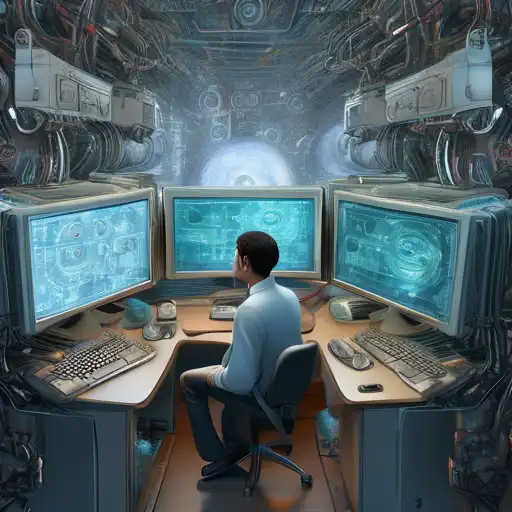Empowering Machines with Sight: The Future of Computer Vision
Computer vision is a field of artificial intelligence (AI) that enables machines to interpret and understand the visual world. By leveraging digital images from cameras and videos and deep learning models, machines can accurately identify and classify objects—and then react to what they "see."
Understanding Computer Vision
At its core, computer vision seeks to replicate the complexity of human vision. It involves the automatic extraction, analysis, and understanding of useful information from a single image or a sequence of images. This process involves acquiring, processing, analyzing, and understanding digital images to extract high-dimensional data from the real world in order to produce numerical or symbolic information.
Applications of Computer Vision
Computer vision has a wide range of applications across various industries. Here are a few examples:
- Healthcare: From detecting tumors in radiology scans to monitoring patient movements, computer vision is revolutionizing healthcare.
- Automotive: Self-driving cars use computer vision to understand their surroundings and navigate safely.
- Retail: Automated checkout systems and inventory management are made possible through computer vision.
- Security: Facial recognition technologies enhance security measures in public spaces and online platforms.
Challenges in Computer Vision
Despite its advancements, computer vision faces several challenges. Variability in lighting, viewpoint, background clutter, and occlusion can affect the accuracy of vision systems. Moreover, the need for large datasets and computational power can be prohibitive for some applications.
The Future of Computer Vision
The future of computer vision is incredibly promising. With advancements in AI and machine learning, we can expect more sophisticated and accurate vision systems. These systems will not only see but also understand the context of visual data, opening up new possibilities for innovation across all sectors.
For those interested in diving deeper into the world of AI and machine learning, exploring machine learning basics can provide a solid foundation. Additionally, understanding deep learning is crucial for anyone looking to specialize in computer vision.
As we continue to teach machines to see, the potential applications are limitless. From enhancing everyday life to solving complex global challenges, computer vision is at the forefront of technological innovation.
